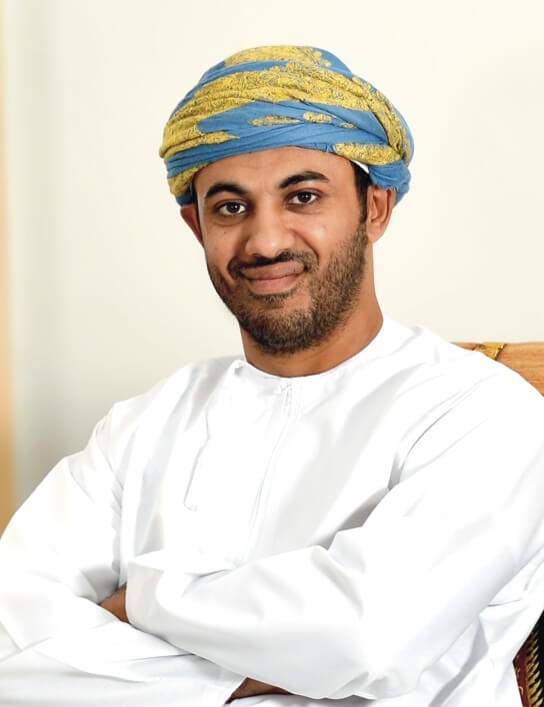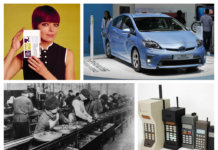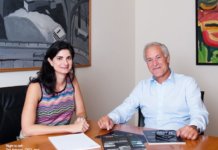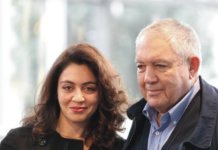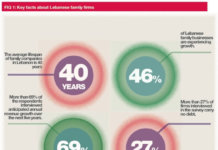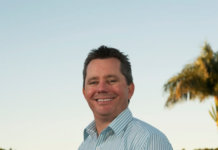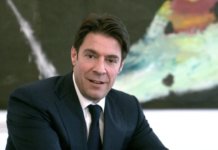The entrepreneurial journey of Qais Al Khonji, Founder of Genesis Projects & Investments LLC – EOR Lab Services, Oman
Qais Al Khonji did not have to take the risk of becoming an entrepreneur. In fact, from an objective standpoint it is hard to determine what exactly prompted the young Omani to embark on the journey he took. Sitting on the board of his multi-generational family business and with a well-paid job in a local bank there was little the average observer could imagine Al Khonji wanted for. But he wanted more. Not more money or more prestige, but to add more value.
After an eventful few years of entrepreneurial ups and downs, Al Khonji is today the founder of the first Omani company to bring modern, innovative and cost effective EOR solutions to the market. He spoke to Tharawat magazine about why he took the risks he did, how many times he failed, and how he got it right in the end.
When did you know that you wanted to be an entrepreneur?
I come from a family business. Doing business has always been in our blood. I knew I wanted to set up my own business when I joined an entrepreneurs’ association named EO, which had a chapter in Oman. I met entrepreneurs who were inspiring. That’s when I knew I wanted to do my own thing by creating something new. I guess it was meant to be because it actually is a part of my nature to enjoy learning from my mistakes and to go after my goals without hesitation. You can’t always do that in a family business. The decisions in the family firm are often taken by majority. It is a more diplomatic process. And so with this all in mind, in 2009 I decided to become an entrepreneur and I quit my job in 2010.
[ms-protect-content id=”4069, 4129″]
Why did you volunteer to take on so much personal entrepreneurial risk?
I believe that my family business will always be there. Someone is there to take care of it. But how was I going to add any value to it? I didn’t have an answer. I wanted to add value, do something that was new. I wanted to gain credit under my own name rather than through my family name. I shouldered the risk willingly.
Are you applying your family’s values to your own business?
Absolutely. Our family is growing and I see the next generation coming into the business. Sometimes it is a bit competitive to get a managerial role so this was one of the reasons why I wanted to go out on my own. I learnt a lot by being on the board of the family business and other publicly listed Omani companies. I saw proposals on the board’s table and had to make funding decisions and these experiences remain a point of reference for my business today.
Once you resigned from your job what were the first steps to beginning your own operation?
I began by trying to bring products that were not available here in Oman into the market. The first time around I had not done a proper feasibility study so I failed and I quickly understood my shortcomings as an entrepreneur. Actually, during this first project I realised that locating funding is not the tough part of being an entrepreneur but rather applying the right type of marketing to your product. In Oman we have a small population and yet the mentality is still slow in executing deals. Sometimes it takes three months for a client to make a decision and as an entrepreneur that is a lot of time. This is one of the challenges of our market and one of the initial lessons I learnt from my first venture. It was a big risk to quit my high-paying banking job and I have made mistakes, but I don’t regret any of my decisions.
What motivates you when faced with an obstacle?
I love reading biographies. I am a big fan of Richard Branson and whenever he is in the region I try to attend his events. So reading was fundamental. The articles I read are about mistakes. Mistakes the first step towards success. You have to keep on going till the last drop and forge ahead. Have some patience. Believe in your business and in your team. I have felt this despair so many times, even recently despite the fact that my business is successful now. But when one door closes another door opens. It’s all about believing in yourself and moving on.
Is entrepreneurship for everyone?
No, I really don’t think so. You have to be a risk taker at heart. You have to be keen to meet a lot of people, you have to network all the time. Through networking, ideas come to you. Of course there are certain qualities of a good entrepreneur that can be learnt through practice. But experience is best and risk taking has to be innate. It is not for someone who shies away from putting their money into a project. You have to try it and expect that it should take you to the next level yet understand that it may allow you to fail.
Entrepreneurship is generally a lonely road to travel. When did you begin to gather a team around you?
When I started building the current business in 2012. It was during a networking session that I met my partner, himself an Indian entrepreneur. We immediately started brainstorming and after a lot of hard work we’ve reached where we are today. By the time we started out together, I had tried health tourism, which didn’t work. I had tried educational tourism; sending students to universities abroad, but that did not work either. We learnt from my experiences and decided to focus on engineering services and this found success immediately. Today, we are the agent for a gas-operated chiller, an invention from India. This chiller is aimed at saving electricity and is one in a series of products we want to bring to the market to build smarter cities. We also have a lab in which we analyse coal fragments for oil companies and refineries in Oman. We are now looking for a coal warehouse where we can also package and supply our goods.
Essentially I went from a very scattered range of interests to a very strong focus on the value chain. We just sold 50% of the company to finance expansion.
Financing is one of the chief points where entrepreneurs fail. Why did you sell part of your company?
We had to move forward and to do so needed to take on a strong partner. We had to think about the future. It was time. It is a matter of either finding investors or the business might collapse. As I said before, you must keep moving.
What will change for your company now that you’ve sold shares in it?
We are still managing the business. The partners will provide the finance people needed. So we are actually working together. Our engineers have the know-how of the industry and the partners do the marketing and finance. I think it is a strong team that will allow us to achieve even more than we already have.
Tharawat Magazine, Issue 24, 2014
[/ms-protect-content]


